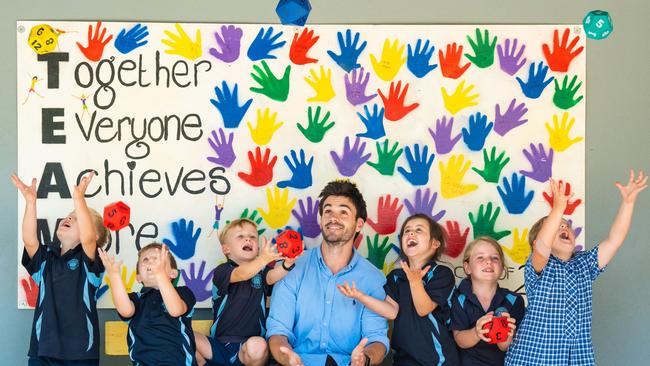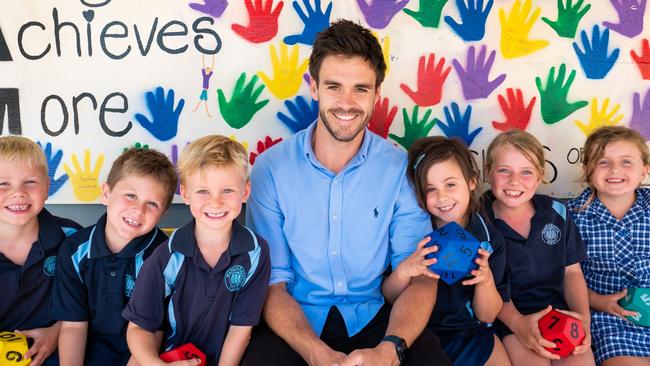Learning maths ‘by rote’ is a thing of the past
Xavier Norden, assistant principal at Wangaratta West Primary School says we seriously need to rethink how we teach maths.
News
Don't miss out on the headlines from News. Followed categories will be added to My News.
This news is hardly surprising, but ‘maths anxiety’ is a legitimate issue among young
students, and Xavier Norden, is working hard to make this subject more inclusive.
Mr Norden, the assistant principal/classroom teacher at Wangaratta West Primary School, two-and-a-half hours outside of Melbourne, said rote learning maths is a thing of the past. Not only does it split up students into groups of “can” and “can’t do maths” but on a data-based level, he said a steady decline in maths NAPLAN results, particularly in females, should alarm all primary school teachers.
“Traditionally, back at school you learnt maths by rote (or repetition). The teacher would do the equation, ‘here’s some scripted formula’ and you’d be expected to go away and to the equation. That is no longer best practice.”

In a move to explore how to shift students’ mindset in regards to maths, Mr Norden won a scholarship to travel to Stanford University in California to partake in a workshop with Dr Jo Boaler, a pre-eminent professor in how to teach mathematics.
In particular, her work focuses on teaching maths with a ‘growth mindset’, which involves sending positive messages in maths. The subject can also fall flat for students if they are faced with a fixed math problem. When teachers present mathematics as a subject of one right or wrong answer and one method, students do not see how they can grow and learn.
“It was interesting, I sat at a table in Stanford with teachers from all over the world, from Dubai to the Netherlands, and all over the world, school’s have the same issue with teaching maths,” said Mr Norden.
Armed with this new knowledge he has wasted no time in implementing a daily practice to build a growth mindset for the teams back at Wangaratta so they can engage all students to become creative, collaborative and critical learners.
“The attitude was in the past, you can either do maths or you can’t, and that is so wrong. We need to spread positive messages about maths and if you persist and value struggle, you can achieve anything. We are seeing high-achieving girls who have a fixed mindset about learning. They fear failure so they avoid maths. We need to say, ‘struggle is good and you can only learn from your mistakes’.”

It’s not just young girls who are avoiding tackling maths by the droves, but lower socio-economic groups are also at a disadvantage.
“Minority groups, based on their background, arrive with a fixed mindset, depending on their family history with school. The way we present maths to students should be, ‘this is not a race’ and allow them to learn at their pace by getting them to collaborate with their peers. The teacher is facilitating the questions but the students are engaged and working together.”
Mr Norden is also not a fan of asking students who know the answer to raise their hand.
“If you’re a shy student you are always going to try and hide. We need to change the way we do things.”
Teachers Mutual Bank Chief Marketing Officer, Nichole Banks, said it’s important we celebrate and support teachers like Mr Norden who are passionate about teaching and are having a positive impact on students.
“The importance of his work is profound as he inspires his students to bring out the best in them. He brings his growth mindset into the classroom and is helping a new generation to engage with mathematics to enhance their understanding and learning.”
Originally published as Learning maths ‘by rote’ is a thing of the past



